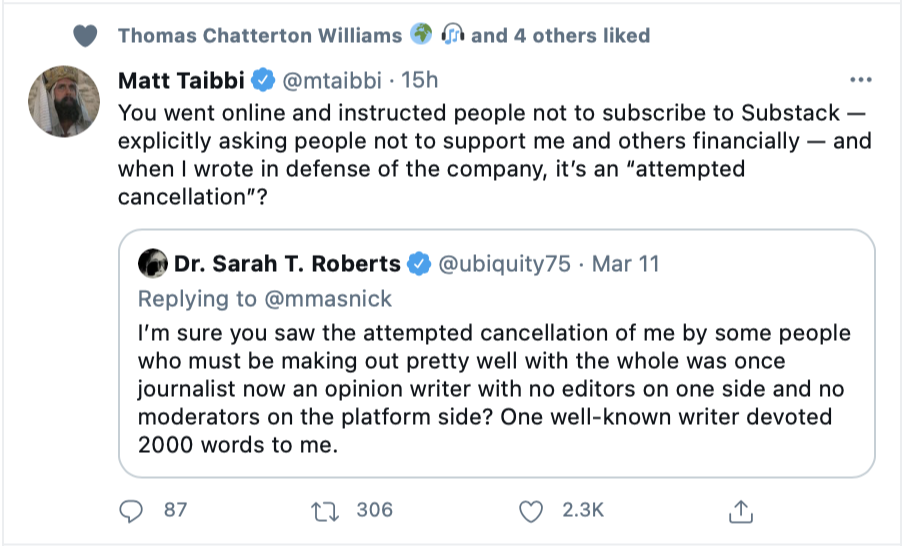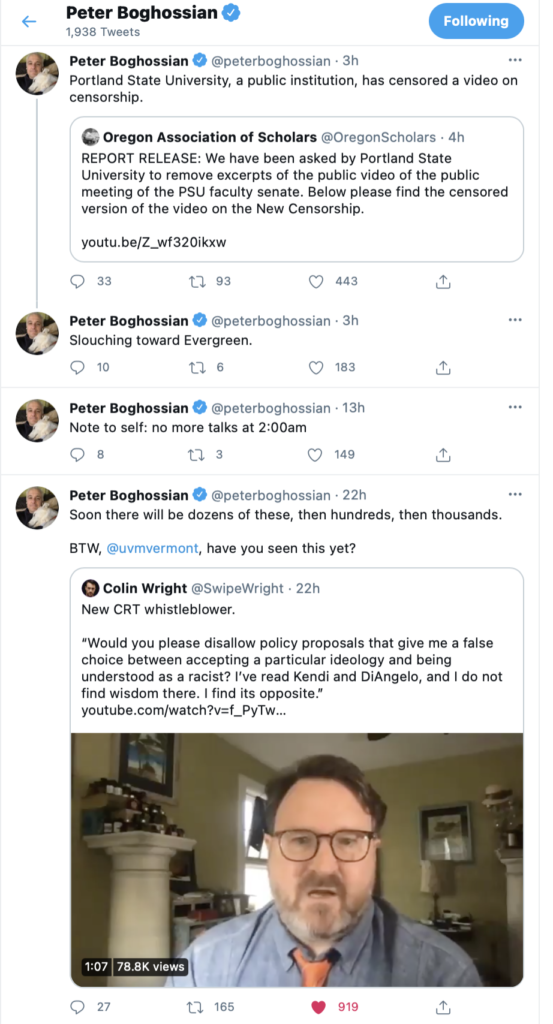Matt Taibbi Discusses the Sovietization of the American Press
I follow Matt Taibbi writings at his site, TK. His recent article is titled: "The Sovietization of the American Press: The transformation from phony "objectivity" to open one-party orthodoxy hasn't been an improvement."
It is a thoughtful analysis with many examples. What I'd like to do in this post is simply post one excerpt showing how the exact same issue is treated extraordinarily differently by the same Newspaper (NYT) under Trump versus under Biden:
[C]overage of Biden increasingly resembles official press releases, often featuring embarrassing, Soviet-style contortions. When Biden decided not to punish Saudi Prince Mohammed bin Salman for the murder of Washington Post writer Jamal Khashoggi on the grounds that the “cost” of “breaching the relationship with one of America’s key Arab allies” was too high, the New York Times headline read: “Biden Won’t Penalize Saudi Crown Prince Over Khashoggi’s Killing, Fearing Relations Breach.” When Donald Trump made the same calculation, saying he couldn’t cut ties because “the world is a very dangerous place” and “our relationship is with the Kingdom of Saudi Arabia,” the paper joined most of the rest of the press corps in howling in outrage.
“In Extraordinary Statement, Trump Stands With Saudis Despite Khashoggi Killing.” was the Times headline, in a piece that said Trump’s decision was “a stark distillation of the Trump worldview: remorselessly transactional, heedless of the facts, determined to put America’s interests first, and founded on a theory of moral equivalence.” The paper noted, “Even Mr. Trump’s staunchest allies on Capitol Hill expressed revulsion.”
This week, in its “Crusader for the Poor” piece, the Times described Biden’s identical bin Salman decision as mere evidence that he remains “in the cautious middle” in his foreign policy. The paper previously had David Sanger dig up a quote from former Middle East negotiator Dennis Ross, who “applauded Mr. Biden for ‘trying to thread the needle here… This is the classic example of where you have to balance your values and your interests.’” It’s two opposite takes on exactly the same thing.


